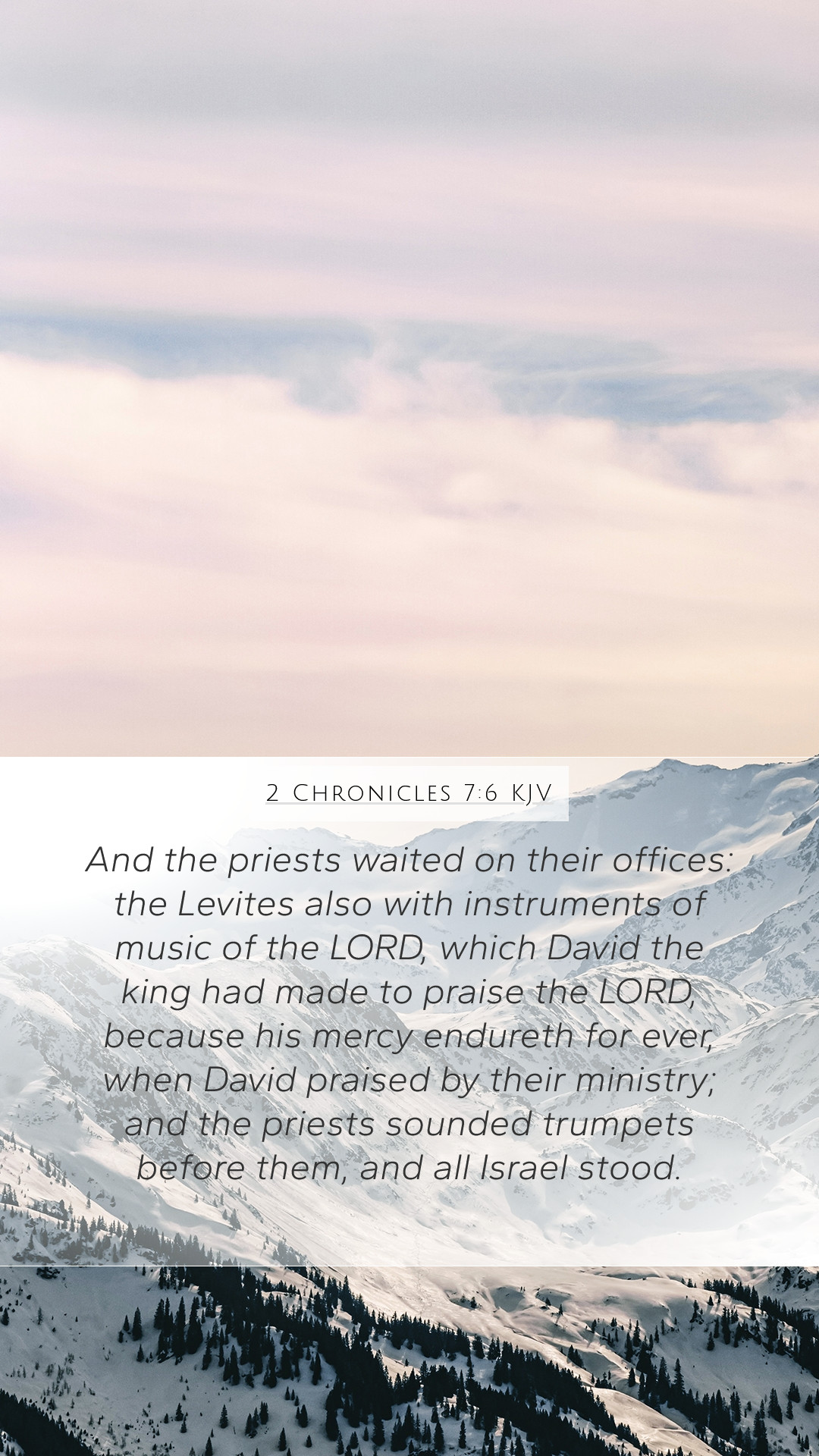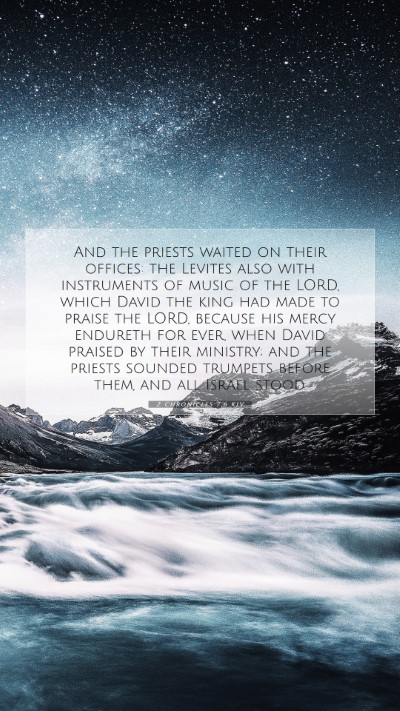Understanding 2 Chronicles 7:6: A Comprehensive Bible Verse Commentary
2 Chronicles 7:6 states: "And the priests waited on their offices: the Levites also with instruments of music of the Lord, which David the king had made to praise the Lord, because his mercy endureth forever, when David praised by their ministry: and the priests sounded trumpets before them, and all Israel stood."
This verse encapsulates a moment of worship and dedication during the dedication of Solomon's temple, highlighting both the organized ministry of the priests and the joyous worship that is appropriate in the presence of God.
Summary and Insights from Public Domain Commentaries
Matthew Henry's Commentary
Matthew Henry emphasizes the role of the priests and Levites in the temple service, showcasing their duty to minister before the Lord. He explains that the priests are not merely performing a ritual, but they are engaged in a heartfelt act of worship. The repetition of praise reflects the ongoing mercy of God and the importance of musical instruments in enhancing the worship experience. Henry notes that this organized worship was a key aspect of Israel's religious life.
Albert Barnes' Commentary
Albert Barnes highlights the significance of music in worship, underscoring that it was a foundational element in the spiritual life of Israel. The instruments made by David symbolize the appropriateness of using creative expressions to honor God. Barnes adds that the sounding of trumpets before the congregation was a call to worship, signifying unity and collective praise, affirming that "God's mercy endures forever" serves as a reminder of His faithfulness throughout generations.
Adam Clarke's Commentary
Adam Clarke provides a historical context, noting the importance of the temple as a central place of worship for the Israelites. He indicates that the gathering of all Israel in the presence of the Lord was a significant moment, aligning with the covenant relationship established with God. Clarke elaborates on the symbolism of the priests and Levites, showing how they reflect the holiness and reverence required in approaching God. He reinforces that the collective effort in worship is a demonstration of community commitment to God.
Thematic Elements in 2 Chronicles 7:6
- Worship and Praise: Emphasizes the necessity of worship in community.
- God's Mercy: Evokes the enduring mercy of God as a core theme.
- Leadership in Worship: Highlights the role of leaders in guiding worship.
- Spiritual Unity: Reflects the unifying aspect of communal worship.
- Historical Significance: Contextualizes the dedication of Solomon’s Temple.
Application of 2 Chronicles 7:6 in Contemporary Worship
Today, the principles from 2 Chronicles 7:6 can be applied to understanding and engaging in modern worship settings. The organization of church services often mirrors the structure seen in the temple worship, where leaders guide congregational worship through music, prayer, and teaching. The verse reminds us of the importance of both personal and collective worship as we come before God, fostering an environment where His mercy and grace can be exalted.
Cross References for Deeper Study
- Psalm 136: A psalm celebrating God's enduring mercy.
- 1 Chronicles 16:4-7: The establishment of worship and musical praise in Israel.
- 2 Samuel 6:5: The joyful worship and music accompanying the Ark of the Covenant.
- Hebrews 10:25: The importance of not neglecting to gather for worship.
- Ephesians 5:19: Encouragements to speak to one another in psalms, hymns, and spiritual songs.
Conclusion
The study of 2 Chronicles 7:6 provides rich insights into the nature of worship, the role of the church, and God's enduring faithfulness. By engaging deeply with this verse through various commentaries, one can draw valuable lessons applicable to both personal devotion and community worship. Understanding Scripture in this manner not only enriches the individual believer's faith but also strengthens the community as a whole in their worship endeavors.


